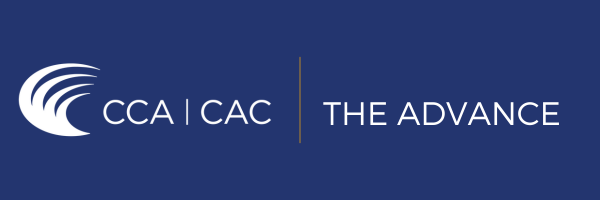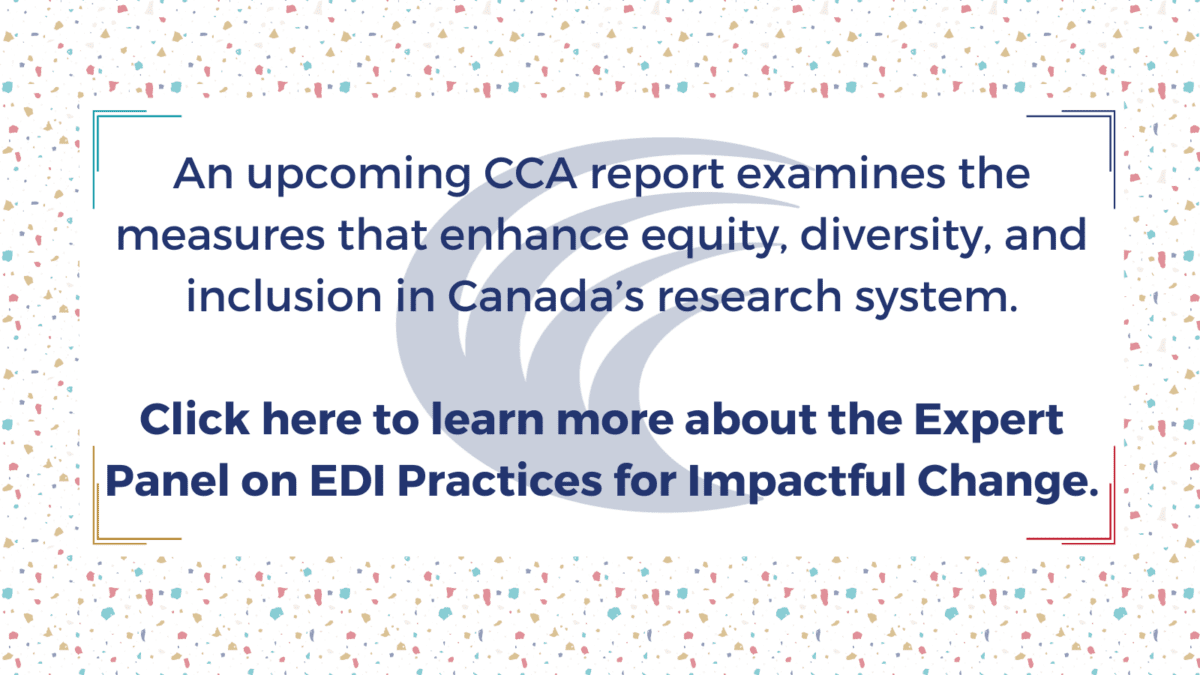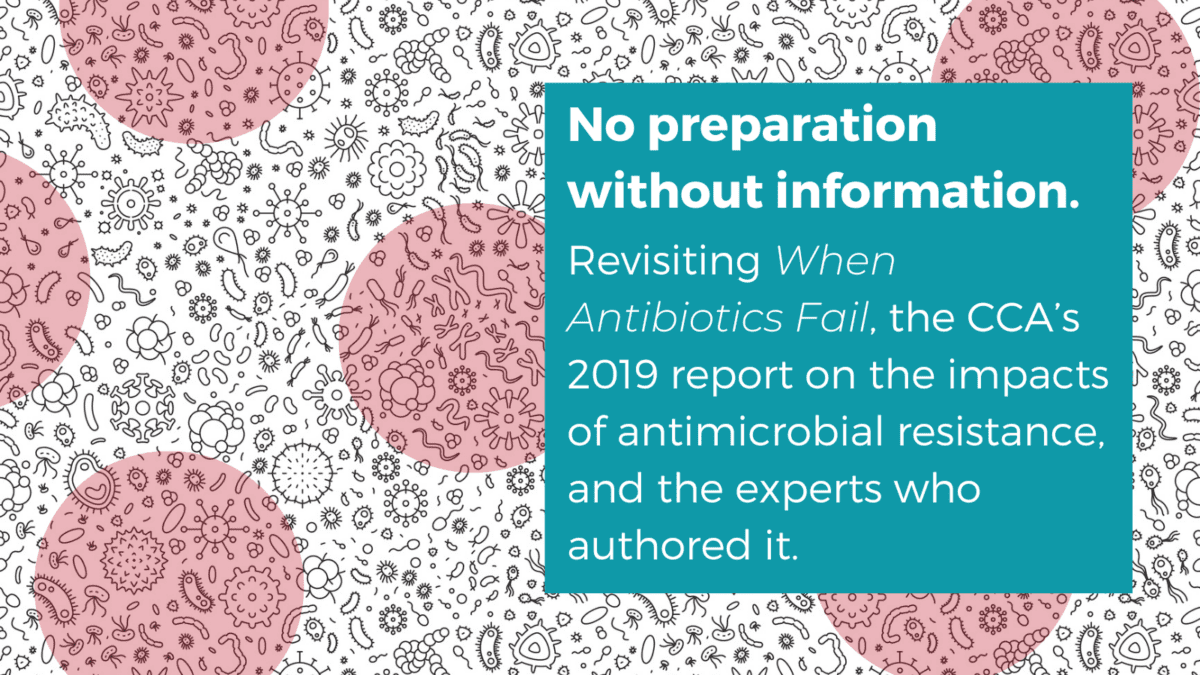
Welcome to The Advance, the newsletter of the CCA. Want to help us promote evidence-informed policy in the public interest? Feel free to forward this newsletter to a friend or colleague. If you haven’t subscribed yet, you can sign up here. Le français suit.
IN THIS EDITION:
- Artificial Intelligence and Canada’s Science Diplomacy Future
- Reviewing equity, diversity, and inclusion practices in Canada’s research system
- A “slower, more capable” ChatGPT; a “system-level change” for arts PhDs in Canada; pushing back on rude peer reviewers; and more
- ICYMI: Revisiting When Antibiotics Fail

Artificial Intelligence and Canada’s Science Diplomacy Future
For nearly two decades, Canada has been a global leader in artificial intelligence (AI) research, contributing a significant percentage of the world’s top-cited scientific publications on the subject. In that time, the number of countries participating in international collaborations has grown significantly, supporting new partnerships and accounting for as much as one quarter of all published research articles.
“Opportunities for partnerships are growing rapidly alongside the increasing complexity of new scientific discoveries and emerging industry sectors,” wrote the CCA Expert Panel on International Science, Technology, Innovation and Knowledge Partnerships earlier this year, singling out Canada’s AI expertise. “At the same time, discussions of sovereignty and national interests abut the movement toward open science and transdisciplinary approaches.”
On Friday, November 22, the CCA will host “Strategy and Influence: AI and Canada’s Science Diplomacy Future” as part of the Canadian Science Policy Centre (CSPC) annual conference. The panel discussion will draw on case studies related to AI research collaboration to explore the ways in which such partnerships inform science diplomacy. Panellists include:
- Monica Gattinger, chair of the CCA Expert Panel on International Science, Technology, Innovation and Knowledge Partnerships and director of the Institute for Science, Society and Policy at the University of Ottawa (pictured)
- David Barnes, head of the British High Commission Science, Climate, and Energy Team
- Constanza Conti, Professor of Numerical Analysis at the University of Florence and Scientific Attaché at the Italian Embassy in Ottawa
- Jean-François Doulet, Attaché for Science and Higher Education at the Embassy of France in Canada
- Konstantinos Kapsouropoulos, Digital and Research Counsellor at the Delegation of the European Union to Canada
For details on CSPC 2024, click here. For a user guide to Navigating Collaborative Futures, from the CCA’s Expert Panel on International Science, Technology, Innovation and Knowledge Partnerships, click here.

Readings
- In Ottawa, Prime Minister Justin Trudeau and President Emmanuel Macron of France renewed their commitment “to strengthening economic exchanges between Canadian and French AI ecosystems.” They also revealed that Canada would be named Country of the Year at Viva Technology’s annual conference, to be held next June in Paris.
- A “slower, but more capable” version of OpenAI is impressing scientists with the strength of its responses to prompts, according to Nature. The new version, referred to as “o1,” outperformed a previous ChatGPT model on a standardized test involving chemistry, physics, and biology questions, and “beat PhD-level scholars on the hardest series of questions.”
- Writing for the Globe and Mail, a trio of politics professors make the case for a “system-level change” that would promote career paths for people with social science and humanities PhDs outside of academia, to benefit “Canada’s public-good needs.” The op-ed draws on Degrees of Success, from the CCA’s Expert Panel on the Labour Market Transition of PhD Graduates.
- In memoriam: Abhishek Gupta, the founder and principal researcher of the Montreal AI Ethics Institute and a member of the CCA Expert Panel on Artificial Intelligence for Science and Engineering, died on September 30. His colleagues shared the news in a memorial post, writing, “It was during his time in Montreal that Abhishek envisioned a future where ethics and AI would intertwine—a vision that became the driving force behind his life’s work.”
- To mark “Peer Review Week,” held during the last week of September, IOP Publishing, which oversees dozens of academic journals, posted a short video criticizing rude and disparaging peer reviews. “People from groups that are historically under-represented in STEM are most likely to report that their confidence as a scientist has been undermined by rude reviews,” a reviewer-engagement manager for IOP, said in an interview. “The STEM community can’t afford to allow unprofessional peer review to disempower effective researchers or lead to important work going unpublished.”
- And, at a high-level meeting on antimicrobial resistance (AMR), the United Nations General Assembly approved a declaration it hopes will reduce AMR-related deaths by 10% by 2030. On the day of the UN meeting, the Public Health Agency of Canada published a progress update on its Pan-Canadian Action Plan on AMR.
